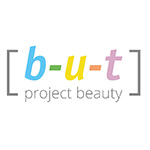Project Beauty asks questions – questions about a deeply personal topic – a theme that for many of us touches on what makes life worth living. Although the project started out as an inquiry to find out more about the variety of perceptions on beauty, the questionnaire that lies at the heart of the project is now used to create more awareness about what really matters in our lives. How did this U-turn happen?
Asking questions is at the heart of research for business. The aim is mostly gathering information, to discover new truths or simply to support organizational decision making. This focus on gathering information in research is often so strong, we easily tend to forget something important, namely the process we use to reach our goal: human interaction. Whether it’s between two people or between one and a few thousands, asking questions to someone and getting an answer is nothing less than an act of communication.
When conducting a survey, it sometimes seems like we expect the respondent not to act like a human being, but more like some sort of reply-robot: “Touch the blue button to let us know how satisfied you are with our company;”, or “Touch the green button if you have ever heard from our brand before.“ How people actually feel about these questions is a non-issue, as long as they supply the required answers. The emotional experience of participating in a survey almost never interests those conducting them, it is all about the mental process of supplying the needed information. Qualitative research may be an exception, but even then participants are still mostly seen as opinion barrels: whatever happens to them after they have opened their minds and the contents is bought off with a book coupon or a bottle of wine.
But when we started out in 2008 asking the readers of a popular magazine in the Netherlands how they experience beauty, something rather peculiar happened: at the end of the survey many participants thanked us for allowing them to fill in the questionnaire. One woman even stated, “While answering your questions I decided to change some things in my life.” This in turn caused us to deeply rethink the idea behind the survey and to ask ourselves anew: “What business do we want to be in?”
“While answering your questions I decided to change some things in my life.”
Research often has a very one-way-street view of communication and neglects the fact that the process between the one who asks a question and the one gives an answer is all about interaction – interaction which by nature involves two sides. Understanding this, the work of interaction theorist Paul Watzlawick helps to illuminate how complicated the seemingly simple art of online surveying really is. No matter how it is conducted, online, written, by telephone or face-to-face, Watzlawick says every communication has a content and relationship aspect.
Pondering on a question to find an answer is a deeply human process. It can set in motion a personal discovery process and can even result in new insights. From this angle, a question is not aimed first and foremost at getting an answer, but at starting a new thought process with another person, a process that directs him or her to brain areas that – for all sorts of reasons – have not been visited for too long. The American author Warren Berger describes this view on asking in his thought provoking book A more Beautiful Question. The power of inquiry to spark breakthrough ideas.
In Project Beauty, we have now used this power to ask “wake-up questions” to over 10.000 people in 7 European and American countries about how they deal with this – wonderful but often also complicated – phenomenon called ‘Beauty’. Questions like “What is the most beautiful thing you have ever experienced in your life?“ And, ultimately, it was the huge amount of gratitude expressed by many of the participants after they had contemplated their personal answers, that changed our view of the business we are in. No longer do we consider Project Beauty to be just a research project, but rather we like to say, we are in the ‘gift business’. Because that is what powerful questions can be: a simple spark that ignites a deep discovery process into what makes life worth living.
– – – – – – – – – – – – – – – – – – – – – – –
Additional information
● The English version of the questionnaire that is at the heart of the project can be found here.
● Want to stay updated Project Beauty? Follow us on Facebook.
● So far the core survey of Project Beauty has been used for national representative surveys in five European countries. Recently we also started offering an in-company version of this inspiring project. In case you are interested to learn more about applying Project Beauty within your organisation: please contact us.
● Project Beauty was made possible by the generous support of various companies (Winkle, PanelBase, SSI Benelux, Blauw Research, Blauw Research Gmbh) and numerous wonderful individuals.
● The development and growth of Project Beauty is sustained with the ‘Seeking Beauty’ gifts: a series of fully personalized (e-)books, based on the core questionnaire of the project, and available for private and corporate gifts. We also offer special in-company versions of the project. Do you like our venture and are you interested in supporting us: feel free to try out these gifts or contact us!

Leave a Reply
You must be logged in to post a comment.